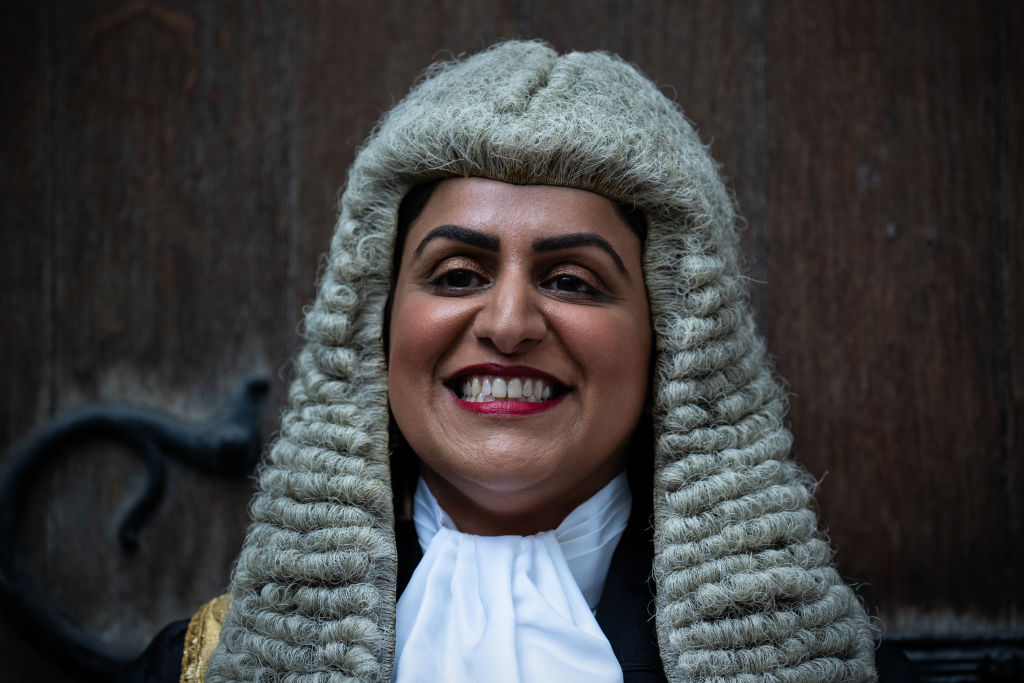Should Shabana Mahmood be allowed to ‘impose’ her religious beliefs on everyone else? Lord Falconer doesn’t think so, arguing yesterday that the Justice Secretary was ‘motivated… by her religious beliefs’ in her opposition to assisted dying. He added: ‘I respect that religious belief but I do not think it should be imposed on everybody else.’
It’s not uncommon to hear a secular politician making this argument about those with religious belief, though perhaps Falconer should be applauded for aiming it at a Muslim politician rather than a Christian one, as is more frequently the case. Either way, suggesting that someone’s religious beliefs mean their views on key issues are in some way less important and perhaps quite sinister is a very common technique. The problem is that it implies only people who subscribe to some kind of organised religion have irrational beliefs that shouldn’t be imposed on the wider population. The truth is that we all have beliefs, religious or not.
Mahmood has offered extensive reasoning for her stance on assisted dying
Falconer knows this very well, as someone who has taken several deep dives into the debate around biological sex and gender. He has given evidence to parliamentary committees and produced lengthy threads on the legal complexities of gender recognition certificates. While he focuses on the administrative implications of the way the law is drafted, he will be well aware that part of the debate rests on a matter of belief: do you believe that someone born in a male body can fully become a woman? Strangely, those who fully assert that this metamorphosis is possible are rarely accused of irrational beliefs, presumably because they are not part of a recognised religion. But just because adherents to certain beliefs don’t turn go to mosque or church, doesn’t mean they haven’t signed up to a wider belief system, even if unwittingly. One of the reasons that the gender debate has become so tortured is that many of its proponents initially backed reforms out of a belief that they were the right, progressive thing to do, and without proper dry examination of the implications. They fitted into the set of beliefs that other progressives approve of, and therefore there wasn’t much need to interrogate what was going on. But agreeing with something because it makes you popular with others isn’t any more respectable than believing what your vicar told you to believe.
That failure to interrogate, though, is exactly the kind of thing Falconer is taking issue with when it comes to Mahmood and assisted dying. It’s just that it is easier to point at a Muslim or a Christian than it is to point at someone who worships progressive secularism and to ask whether they have really thought through whatever they are about to ‘impose’ on others.
In any case, the debate around Kim Leadbeater’s bill on assisted dying really hasn’t become split along religious and secular lines, even though some campaigners including Falconer and the Humanists, would like to characterise it as such. Some of the more vocal opponents are worried about the drafting of the legislation rather than the principle: Liberty, not known for being a hotbed of religious fundamentalism, has come out against the bill on those grounds. Others have not darkened the door of any religious building for many years but are nonetheless opposed to the principle itself, too. Some of them have poor arguments against, some are well-thought-through. Mahmood has offered extensive reasoning for her stance on the bill, as we should expect of any politician doing their job. The arguments in the Commons this Friday would be vastly improved if all MPs felt the same pressure to interrogate their own beliefs and show that they had the right to ‘impose’ their views on everyone else.
How might the religious views of MPs influence their vote? Listen to the latest episode of The Spectator’s religion podcast Holy Smoke, with Damian Thompson, Isabel Hardman, Rabbi Dr Jonathan Romain and Martin Vickers MP:








Comments